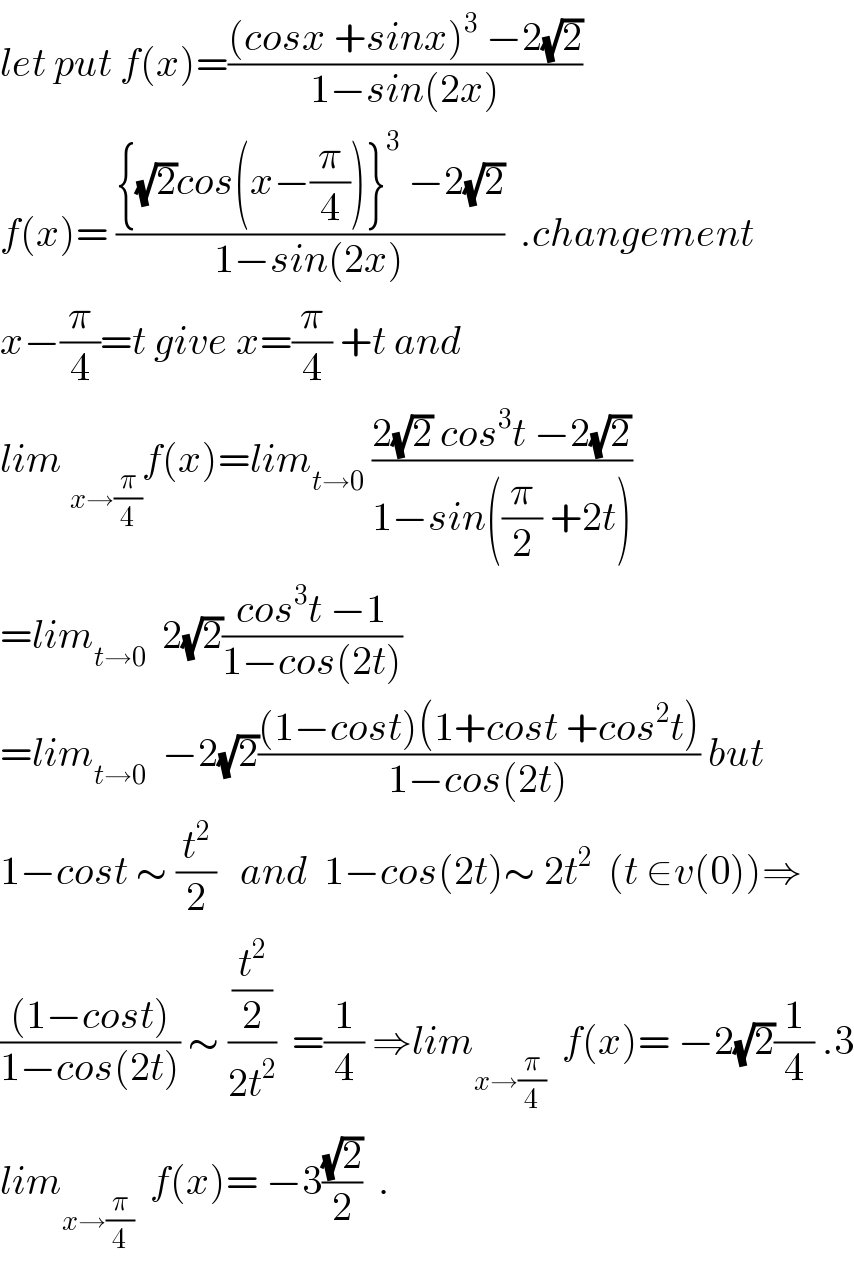
Question and Answers Forum
Question Number 34540 by rahul 19 last updated on 07/May/18

Commented by abdo mathsup 649 cc last updated on 07/May/18

Commented by abdo mathsup 649 cc last updated on 08/May/18

| ||
Question and Answers Forum | ||
Question Number 34540 by rahul 19 last updated on 07/May/18 | ||
 | ||
Commented by abdo mathsup 649 cc last updated on 07/May/18 | ||
 | ||
Commented by abdo mathsup 649 cc last updated on 08/May/18 | ||
 | ||